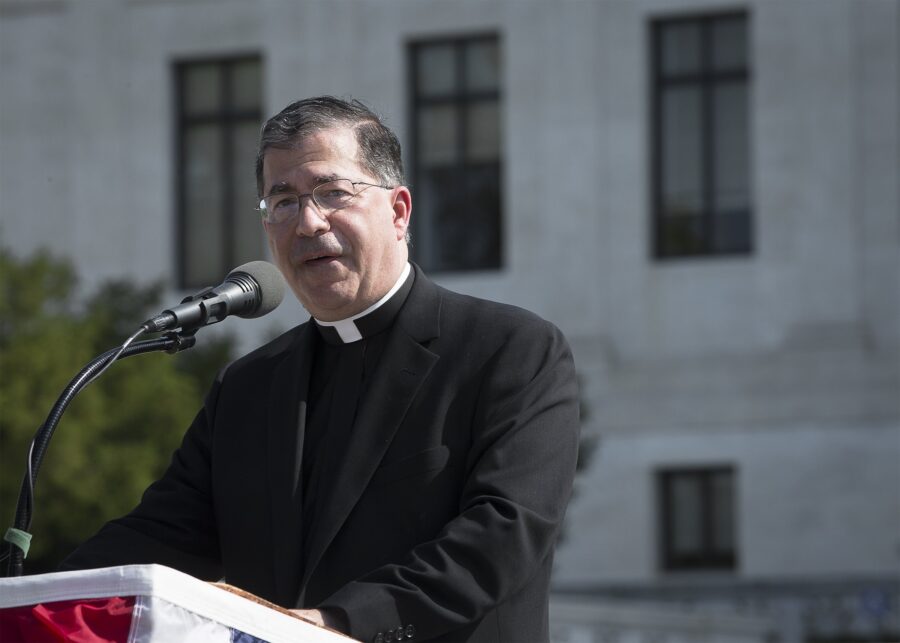As abortionists are marching into the Supreme Court to strike down laws that protect their patients from the misconduct of those same abortionists, could they possibly have the audacity to claim to represent those patients?
Yes, that is exactly what’s happening in the current abortion case, June Medical Services v. Russo. Abortionists are claiming to speak for their patients as they try to strike down a Louisiana health and safety law. But the state of Louisiana is calling them out on it with a “cross-petition” challenging the third-party standing of those abortionists.
It is an indisputable fact that abortionists do not have close “doctor-patient” relationships with their patients. In fact, they normally don’t have any relationship at all. They are total strangers, and never see those women again unless they return for a subsequent abortion.
Relationships with patients are of no concern to these unscrupulous abortionists, who are part of the one of the most unregulated industries in the nation and are driven primarily by profit and power. That’s why it’s crazy, and a glaring example of a bad Supreme Court precedent, to let these doctors challenge health and safety regulations that are meant to make abortion less hazardous for mothers.
The case abortionists rely on to assert standing, Singleton v. Wulff, was also an abortion case, decided in 1976 by virtually the same Court that legalized abortion just three years earlier. Although the Singleton decision was less clear-cut, it held that “Standing arises if the person bringing a case to assert the rights of a third party has a close relationship with that third party, and the third party has obstacles preventing it from suing on its own behalf.”
In the case currently before the Supreme Court, not a single woman from Louisiana is challenging the law that is under review, and yet there is no evidence that they couldn’t challenge it if they wanted to.
So the third-party standing of abortionists in this case fails both criteria in the Singleton decision.
More than 40 organizations, including Priests for Life, submitted amicus briefs in support of Louisiana and the law it passed to protect the health and safety of women getting abortions. Many of these briefs argued that abortionists should not be entitled to challenge laws on behalf of potential future patients whom they do not know and, arguably, do not care about.
Here are ten compelling reasons – with links to the amicus briefs from which they are drawn – why the Court should rule that abortionists do not have the right to speak for their patients.
- “Abortion providers do not possess reproductive rights.” Brief
- “Women seeking abortion need not rely on practitioners to assert their rights; women can effectively assert their own rights, and courts generally allow them to do so anonymously.” Brief
- “It is impossible for abortion clinics and doctors to share or represent the interests of their patients when they seek to eliminate the very regulations designed to protect their patients’ health and safety.” Brief
- “… invalidating a health-and safety regulation would benefit providers who have an interest in minimizing compliance costs, not patients who have an interest in ensuring abortions occur in the least dangerous conditions possible.” Brief
- “The Court should instead hold that abortion providers do not have … standing to challenge, supposedly on behalf of their patients, common-sense abortion regulations that protect patients from unsafe practices by those very same providers.” Brief
- “Third-party standing cannot be based on hypothetical future relationships.” Brief
- Abortion providers’ “real concern is not the burden they allege admitting privileges requirements impose on their patients, but the burden this imposes on their income.” Brief
- “Doctors are hijacking women’s rights to overturn a regulation that helps keep them safe during abortion.” Brief
- “This conflict is not merely an academic exercise in constitutional concepts but a real conflict that has real victims.” Brief
- “Abortion providers cannot manufacture their standing by their own misconduct.” Brief
As the Court was hearing oral arguments in this case at the beginning of March, women from our Silent No More Campaign, who have had abortions, shared their stories at rallies in front of the Court. In one testimony after the other, the same refrain was heard: “There was no doctor-patient relationship between the abortionist and me.”
Hopefully, the voices of experience will help to shape the judgment of the Court.
Father Frank Pavone is the national director of Priests for Life and the co-chair of Pro-Life Voices for Trump. More information about June Medical Services can be found at SupremeCourtVictory.com
